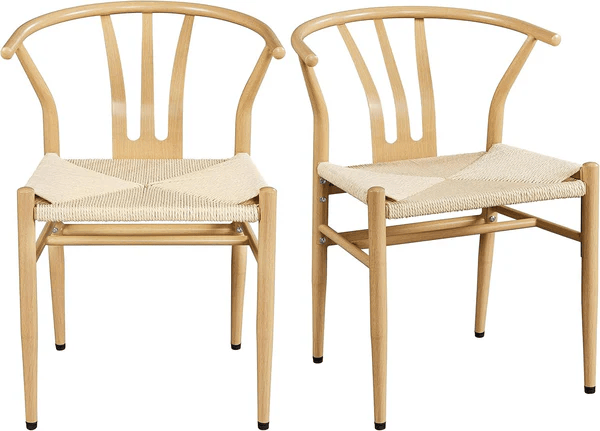Who Benefits Most? Ideal Candidates for Epilepsy Device Therapy
While epilepsy devices offer a promising avenue for seizure control, they are not a universal solution for everyone with epilepsy. Identifying the ideal candidates for these advanced therapies is a meticulous process, requiring a comprehensive evaluation by a multidisciplinary team of specialists.
https://www.marketresearchfuture.com/reports/epilepsy-devices-market-10427
These devices are typically considered when anti-seizure medications (ASMs) have proven ineffective.
The "Drug-Resistant Epilepsy" Criterion:
The primary criterion for considering device therapy is drug-resistant epilepsy (DRE), also known as refractory epilepsy. This is defined as the failure of adequate trials of two tolerated and appropriately chosen ASMs (either as monotherapy or in combination) to achieve sustained seizure freedom.
If a patient continues to experience debilitating seizures despite optimized medication regimens, devices become a viable next step.
Ideal Candidates for Specific Device Types:
1. Vagus Nerve Stimulation (VNS):
VNS is often considered a broad-spectrum adjunctive therapy for many types of drug-resistant epilepsy, particularly when:
Focal Seizures: The patient has focal seizures, but the seizure onset zone cannot be precisely localized for resective surgery, or it's located in an eloquent (critical for function) brain area.
Generalized Seizures: While primarily studied for focal epilepsy, VNS can also be considered for certain types of generalized seizures, especially those associated with drop attacks.
Multiple Seizure Foci: Patients with seizures originating from multiple areas of the brain that cannot be surgically removed may benefit.
Not a Surgical Candidate: Individuals who are not candidates for resective brain surgery due to medical comorbidities, age, or extensive seizure networks.
Failed Other Treatments: VNS is often tried after multiple ASMs have failed and before or after considering more invasive brain surgeries.
Psychiatric Comorbidities: VNS has shown some positive effects on mood disorders often associated with epilepsy, making it a potentially beneficial option for patients with comorbid depression or anxiety.
2. Responsive Neurostimulation (RNS System - NeuroPace):
RNS is highly specific and targeted, making its candidacy criteria stricter:
Focal Seizures with Identifiable Onset Zone(s): RNS is specifically for adults with drug-resistant focal epilepsy where up to two seizure onset zones can be identified and mapped.
Seizure Onset in Eloquent Cortex: Ideal for patients whose seizure onset zones are located in areas of the brain critical for functions like speech, motor control, or memory, where surgical resection would cause unacceptable neurological deficits.
Not a Candidate for Resective Surgery: Similar to VNS, RNS is for those who are not candidates for traditional resective surgery or for whom resective surgery has failed.
High-Resolution Pre-surgical Evaluation: Candidates must undergo extensive pre-surgical evaluation, including long-term video-EEG monitoring, high-resolution MRI, and sometimes intracranial EEG (stereo-EEG or grid/strip placement), to precisely localize the seizure onset zone(s).
3. Deep Brain Stimulation (DBS) for Epilepsy:
DBS is an evolving therapy for epilepsy, with specific indications:
Focal or Generalized Epilepsy: DBS for epilepsy is often considered for drug-resistant focal seizures that may or may not be precisely localized, or for certain types of generalized seizures that are difficult to control. The target for stimulation varies based on seizure type.
Failure of Other Therapies: Typically considered after other options, including VNS or resective surgery (if applicable), have been explored.
Thalamic Targets: Stimulation of the anterior nucleus of the thalamus (ANT-DBS) is a common approach for certain focal epilepsies.
Comorbidities: As with other neuromodulation techniques, a comprehensive evaluation of the patient's overall health and psychiatric status is crucial.
4. External Monitoring and Alert Devices:
These devices are for a broader range of patients, not just those with DRE:
Safety and Peace of Mind: For anyone with epilepsy, especially those living alone, children, or individuals prone to convulsive seizures (like generalized tonic-clonic seizures).
Caregiver Support: Provides immediate alerts to family members or caregivers during a seizure, allowing for timely intervention and reducing the risk of injury or SUDEP.
Seizure Tracking: Helps patients and neurologists accurately track seizure frequency, duration, and patterns, which is invaluable for treatment adjustments.
Nocturnal Seizures: Particularly useful for detecting seizures during sleep that might otherwise go unnoticed.
The Multidisciplinary Evaluation Process:
The decision to implant an epilepsy device is never taken lightly. Patients undergo a rigorous evaluation, typically at a specialized epilepsy center in Pune or other major cities, involving a team that includes:
Epileptologists: Neurologists specializing in epilepsy, who lead the evaluation and manage long-term care.
Neurosurgeons: To perform the implantation surgery.
Neuropsychologists: To assess cognitive function before and after surgery.
Neuroradiologists: To interpret advanced imaging.
Nurses and Social Workers: For patient education, support, and practical assistance.
This thorough assessment ensures that the chosen device therapy is the most appropriate and beneficial for the individual patient, maximizing their chances of achieving better seizure control and an improved quality of life.
Who Benefits Most? Ideal Candidates for Epilepsy Device Therapy
While epilepsy devices offer a promising avenue for seizure control, they are not a universal solution for everyone with epilepsy. Identifying the ideal candidates for these advanced therapies is a meticulous process, requiring a comprehensive evaluation by a multidisciplinary team of specialists.
https://www.marketresearchfuture.com/reports/epilepsy-devices-market-10427
These devices are typically considered when anti-seizure medications (ASMs) have proven ineffective.
The "Drug-Resistant Epilepsy" Criterion:
The primary criterion for considering device therapy is drug-resistant epilepsy (DRE), also known as refractory epilepsy. This is defined as the failure of adequate trials of two tolerated and appropriately chosen ASMs (either as monotherapy or in combination) to achieve sustained seizure freedom.
If a patient continues to experience debilitating seizures despite optimized medication regimens, devices become a viable next step.
Ideal Candidates for Specific Device Types:
1. Vagus Nerve Stimulation (VNS):
VNS is often considered a broad-spectrum adjunctive therapy for many types of drug-resistant epilepsy, particularly when:
Focal Seizures: The patient has focal seizures, but the seizure onset zone cannot be precisely localized for resective surgery, or it's located in an eloquent (critical for function) brain area.
Generalized Seizures: While primarily studied for focal epilepsy, VNS can also be considered for certain types of generalized seizures, especially those associated with drop attacks.
Multiple Seizure Foci: Patients with seizures originating from multiple areas of the brain that cannot be surgically removed may benefit.
Not a Surgical Candidate: Individuals who are not candidates for resective brain surgery due to medical comorbidities, age, or extensive seizure networks.
Failed Other Treatments: VNS is often tried after multiple ASMs have failed and before or after considering more invasive brain surgeries.
Psychiatric Comorbidities: VNS has shown some positive effects on mood disorders often associated with epilepsy, making it a potentially beneficial option for patients with comorbid depression or anxiety.
2. Responsive Neurostimulation (RNS System - NeuroPace):
RNS is highly specific and targeted, making its candidacy criteria stricter:
Focal Seizures with Identifiable Onset Zone(s): RNS is specifically for adults with drug-resistant focal epilepsy where up to two seizure onset zones can be identified and mapped.
Seizure Onset in Eloquent Cortex: Ideal for patients whose seizure onset zones are located in areas of the brain critical for functions like speech, motor control, or memory, where surgical resection would cause unacceptable neurological deficits.
Not a Candidate for Resective Surgery: Similar to VNS, RNS is for those who are not candidates for traditional resective surgery or for whom resective surgery has failed.
High-Resolution Pre-surgical Evaluation: Candidates must undergo extensive pre-surgical evaluation, including long-term video-EEG monitoring, high-resolution MRI, and sometimes intracranial EEG (stereo-EEG or grid/strip placement), to precisely localize the seizure onset zone(s).
3. Deep Brain Stimulation (DBS) for Epilepsy:
DBS is an evolving therapy for epilepsy, with specific indications:
Focal or Generalized Epilepsy: DBS for epilepsy is often considered for drug-resistant focal seizures that may or may not be precisely localized, or for certain types of generalized seizures that are difficult to control. The target for stimulation varies based on seizure type.
Failure of Other Therapies: Typically considered after other options, including VNS or resective surgery (if applicable), have been explored.
Thalamic Targets: Stimulation of the anterior nucleus of the thalamus (ANT-DBS) is a common approach for certain focal epilepsies.
Comorbidities: As with other neuromodulation techniques, a comprehensive evaluation of the patient's overall health and psychiatric status is crucial.
4. External Monitoring and Alert Devices:
These devices are for a broader range of patients, not just those with DRE:
Safety and Peace of Mind: For anyone with epilepsy, especially those living alone, children, or individuals prone to convulsive seizures (like generalized tonic-clonic seizures).
Caregiver Support: Provides immediate alerts to family members or caregivers during a seizure, allowing for timely intervention and reducing the risk of injury or SUDEP.
Seizure Tracking: Helps patients and neurologists accurately track seizure frequency, duration, and patterns, which is invaluable for treatment adjustments.
Nocturnal Seizures: Particularly useful for detecting seizures during sleep that might otherwise go unnoticed.
The Multidisciplinary Evaluation Process:
The decision to implant an epilepsy device is never taken lightly. Patients undergo a rigorous evaluation, typically at a specialized epilepsy center in Pune or other major cities, involving a team that includes:
Epileptologists: Neurologists specializing in epilepsy, who lead the evaluation and manage long-term care.
Neurosurgeons: To perform the implantation surgery.
Neuropsychologists: To assess cognitive function before and after surgery.
Neuroradiologists: To interpret advanced imaging.
Nurses and Social Workers: For patient education, support, and practical assistance.
This thorough assessment ensures that the chosen device therapy is the most appropriate and beneficial for the individual patient, maximizing their chances of achieving better seizure control and an improved quality of life.




